Bringing a feathered friend into your home may seem like a delightful prospect, but the decision to bring a pet bird into your life comes with its own set of responsibilities and challenges.
Not everyone is suited for avian companionship, and it’s crucial to recognize the signs that indicate a bird may not be the right fit for you.
In this guide, we’ll navigate through the subtleties of bird ownership, shedding light on 10 signs you should NOT get a pet bird and reconsider feathering your nest with a pet bird.
From time commitments to space constraints, understanding these red flags can save both you and a potential avian companion from a mismatched relationship.
So, before you embark on the journey of avian companionship, let’s explore the signs that suggest it might be best to admire our feathered friends from afar.

10 Signs You Should NOT Get a Pet Bird
Owning a pet bird can be a rewarding experience, but it’s not for everyone. Recognizing the signs that indicate you may not be ready for avian companionship is crucial to ensure the well-being of both you and a potential feathered friend.
Here are 10 clear signs that suggest you should reconsider getting a pet bird.
1. Limited Time Commitment

If your daily schedule is packed with commitments, owning a pet bird may not be feasible. Birds require social interaction, mental stimulation, and physical exercise.
If you can’t dedicate enough time to bonding with and caring for a bird, it’s a sign you should hold off on getting one.
2. Financial Constraints

Birds come with expenses, including food, toys, veterinary care, and possibly a larger living space. If your budget is tight and you can’t afford the necessary supplies and healthcare, it’s a red flag. Financial stability is crucial for providing a bird with a comfortable and healthy life.
3. Inadequate Space
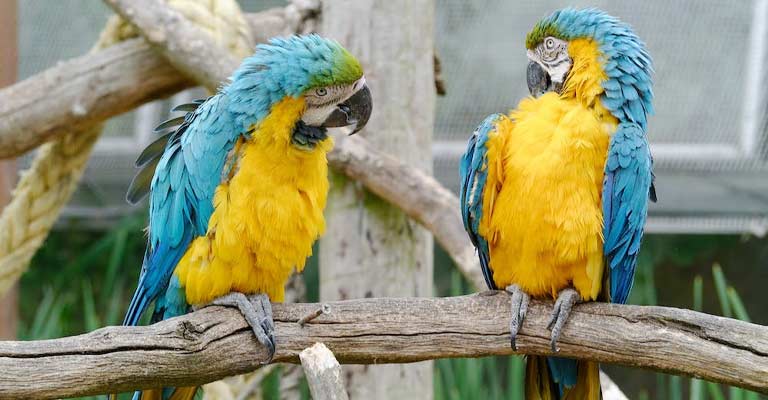
Birds need space to fly, explore, and exercise. If you live in a cramped apartment or lack a suitable environment for a bird to spread its wings, it’s best to reconsider. Confining a bird to a small space can lead to stress and health issues.
4. Allergies

Some people are allergic to bird dander. Before bringing a bird home, consider whether you or anyone in your household has allergies that could be aggravated by feathered companionship. Ignoring this could lead to health complications for both you and the bird.
5. Noise Sensitivity
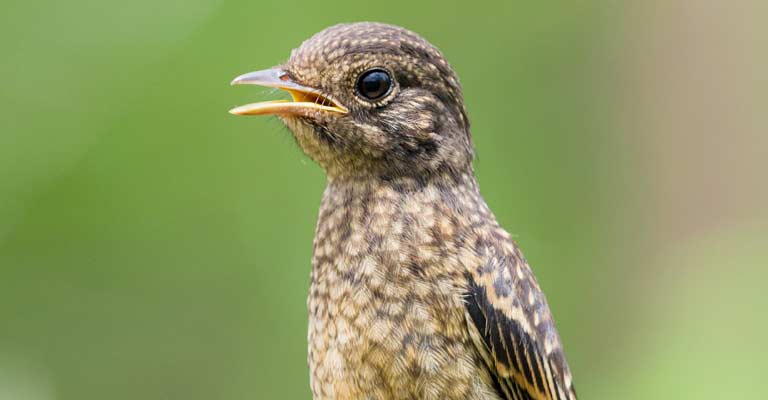
Birds, especially certain species, can be noisy. If you live in a noise-sensitive environment or have neighbors who may not appreciate avian sounds, getting a bird might not be considerate.
Understanding the noise level associated with different bird species is crucial for a harmonious living situation.
6. Long-Term Commitment
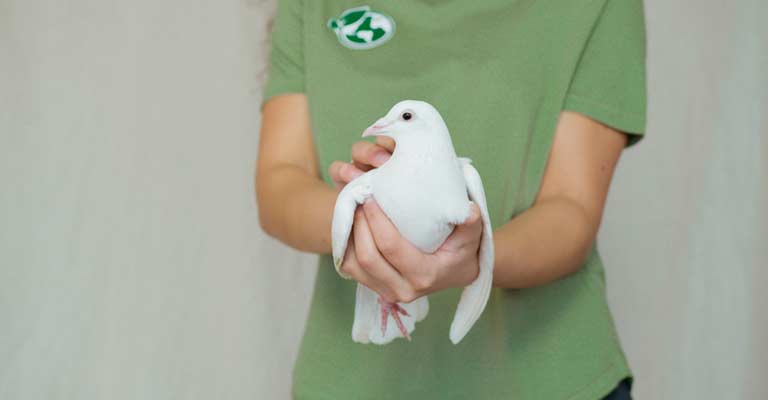
Birds can live for decades, and they form strong bonds with their owners. If you’re not ready for a long-term commitment and the responsibilities that come with it, getting a pet bird may not be the best choice. Consider your plans and whether they align with a bird’s lifespan.
7. Inexperience with Bird Care
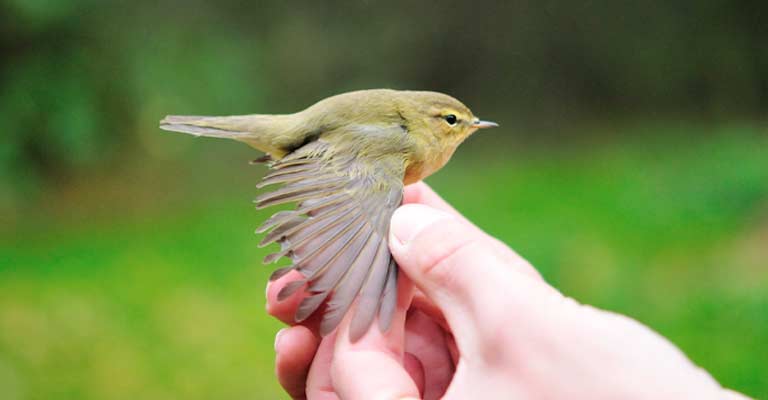
Proper bird care involves understanding their dietary needs, social behaviors, and potential health issues. If you lack experience or haven’t done thorough research on bird care, it’s a sign that you should educate yourself before bringing a feathered friend into your home.
8. Preexisting Pets
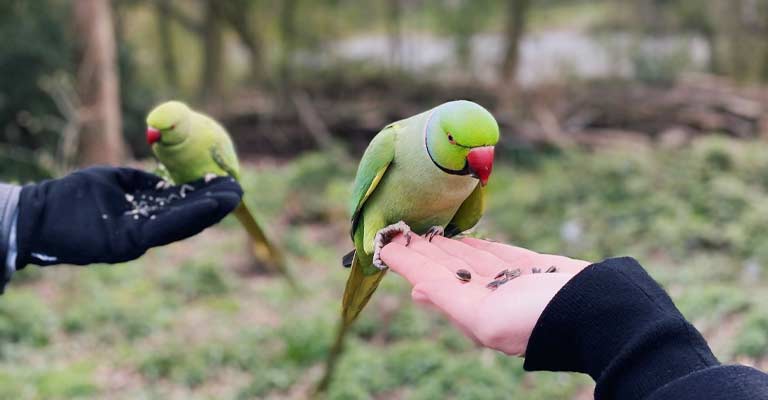
If you already have pets, especially those with a strong prey drive, introducing a bird into the mix can be risky. Some animals may view birds as prey, posing a threat to the bird’s safety. Ensure compatibility and take precautions before adding a bird to a household with other animals.
9. Emotional Preparedness
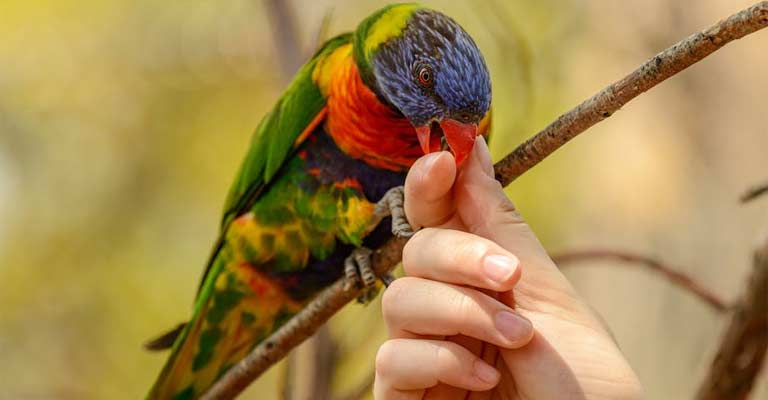
Birds are intelligent and emotionally sensitive creatures. They thrive on positive interactions and can suffer from loneliness and stress.
If you’re not emotionally prepared to invest time, patience, and understanding into building a relationship with a bird, it’s a sign that you may not be ready for the emotional demands of avian companionship.
10. Legal Restrictions

Check local regulations regarding pet birds. Some areas have restrictions on certain bird species, and obtaining the necessary permits may be challenging. Ensure you can legally and responsibly keep a pet bird in your location.
Recognizing these signs is not a declaration that you can never have a pet bird. It’s an acknowledgment that responsible pet ownership requires careful consideration and preparation.
If any of these signs resonate with your current situation, take the time to address them before welcoming a feathered friend into your life.
Responsible decisions lead to fulfilling companionships, ensuring a positive experience for both you and your potential avian companion.
How Do I Know I’m Ready for a Pet Bird?
Having a pet bird can be a delightful and enriching experience, but it comes with its own set of responsibilities.
To ensure a harmonious relationship with your feathered friend, it’s crucial to evaluate your readiness for avian companionship. Here are key indicators that suggest you’re ready to welcome a pet bird into your life.
Research and Education
If you’ve taken the time to thoroughly research and educate yourself about different bird species, their specific needs, and common health issues, you’re on the right track. Being well-informed is a strong indicator of readiness for responsible bird ownership.
Financial Preparedness
Birds come with financial responsibilities, including food, toys, cage setup, and potential veterinary care. If you have a stable financial situation and can afford the costs associated with bird ownership, you’re demonstrating a crucial aspect of readiness.
Time and Commitment
Birds, especially social species, require time and attention. If you can dedicate a significant portion of your day to interacting with and caring for a bird, you’re indicating a readiness for the social demands of avian companionship.
Emotional Availability
Birds form strong bonds with their owners and thrive on positive interactions. If you’re emotionally available and ready to invest in building a relationship with a pet bird, you’re demonstrating an essential aspect of bird ownership readiness.
Suitable Living Environment
Assess your living space to ensure it’s suitable for a bird. Birds need space to fly, explore, and exercise. If you have a spacious and bird-friendly environment, you’re creating a conducive setting for your feathered friend.
Noise Tolerance
Birds, depending on the species, can be noisy. If you’re tolerant of and prepared for the sounds associated with avian companionship, you’re indicating a level of acceptance crucial for a harmonious living situation.
Long-Term Commitment
Birds have long lifespans, and a commitment to caring for them should align with their potential decades of life. If you’re ready for a long-term commitment and willing to provide consistent care throughout a bird’s life, you’re displaying a key aspect of readiness.
Experience with Pets
If you have prior experience with pet ownership, especially with birds or animals that require specialized care, you’re better equipped to handle the responsibilities associated with bird companionship.
Preparedness for Training
Birds benefit from positive reinforcement training. If you’re willing to invest time and effort into training your bird, you’re demonstrating a commitment to fostering a well-behaved and happy companion.
Legal Awareness
Understanding and adhering to local regulations regarding pet birds is essential. If you’ve researched and ensured that you can legally and responsibly keep a bird in your location, you’re showing awareness and readiness for responsible ownership.
Social Compatibility
Assess your social lifestyle and determine if it aligns with the social needs of a pet bird. Birds are highly social creatures that thrive on interaction.
If you enjoy spending time at home and can incorporate your bird into your daily activities, you’re showing an understanding of the social aspect of bird ownership.
Emergency Preparedness
Consider your readiness for unexpected situations. If you have a plan in place for emergencies, including access to avian veterinary care and knowledge of common bird health issues, you’re demonstrating a responsible approach to the potential challenges that may arise during your bird’s lifetime.
Being prepared ensures the well-being of your feathered companion in various circumstances.
Being ready for a pet bird involves a combination of knowledge, commitment, and emotional preparedness. If you resonate with these indicators, you’re likely well-prepared to embark on the journey of avian companionship.
Remember, responsible pet ownership contributes to a fulfilling relationship between you and your feathered friend, fostering a positive and enriching experience for both.
FAQs
What types of birds make good pets?
Many individuals enjoy the companionship of parrots, cockatiels, budgies, and canaries as pets. These species are known for their social nature and adaptability to domestic environments.
How much time should I dedicate to a pet bird daily?
Birds require a significant amount of daily interaction. On average, spending at least 1-2 hours of quality time with your bird is recommended to ensure social bonding, mental stimulation, and physical exercise.
Are there common health issues in pet birds?
Yes, pet birds can experience health issues such as respiratory problems, nutritional deficiencies, and feather disorders. Regular veterinary check-ups, a balanced diet, and a clean living environment contribute to their overall well-being.
What kind of diet do pet birds need?
The dietary needs of pet birds vary by species. Generally, a balanced diet includes a mix of high-quality pellets, fresh fruits, vegetables, and occasional treats. Avoid feeding them foods that are toxic to birds, such as chocolate and avocado.
Can I keep a pet bird in an apartment?
Yes, you can keep a pet bird in an apartment, but it’s essential to consider the space, noise level, and potential restrictions.
Choose a species that suits apartment living, provides ample space for flying, and is mindful of noise to maintain a positive relationship with neighbors.
Conclusion
Choosing to bring a pet bird into your life is a decision that requires careful consideration and self-awareness.
By recognizing the 10 signs highlighted in this guide, you can make an informed choice that aligns with both your lifestyle and the well-being of a potential feathered companion.
Remember, responsible pet ownership involves not only the joys but also the challenges, and understanding when a pet bird may not be the right fit is a sign of true dedication to animal welfare.
Whether it’s acknowledging time constraints, financial commitments, or a lack of suitable space, being honest with yourself about your ability to meet a bird’s needs is a compassionate choice.
If the signs indicate that a pet bird might not be the ideal addition to your life at this moment, it’s perfectly okay to appreciate these marvelous creatures from a respectful distance. Always prioritize the happiness and health of both yourself and any potential animal companion.